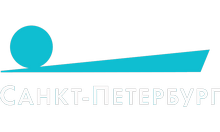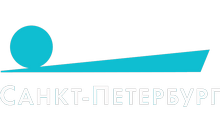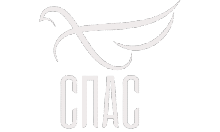
Программа передач RT Док
-
00:00
д/ф Филатов. Несказанное
Документальный фильм погружает зрителей в мир военного корреспондента Андрея Филатова, который с начала войны отправился в Донбасс. Он не только показывает захватывающие кадры боевых действий, но и рассказывает о жизни простых солдат на передовой, делясь личными историями о столкновениях с противником лицом к лицу. Андрей описывает, как его опыт пилотирования беспилотников стал жизненно важным в боевых условиях, когда его съемки спасали бойцов от смерти. Также в фильме показана сконструированная им электрическая эвакуационная тележка, которая значительно облегчает процесс вывоза раненых
-
00:30
д/ф Позывной «Буханка»
Фильм посвящен легендарному автомобилю УАЗ-452, который стал настоящим символом фронта. В этом фильме зрители погружаются в мир, где «буханка» выполняет жизненно важные задачи: от транспортировки раненых до доставки гуманитарной помощи. Через истории военнослужащих и волонтеров мы узнаем, как эта простая, но надежная машина стала незаменимым помощником на передовой. Лента показывает, как «буханка» объединяет людей, преодолевая трудности и опасности, и становится не просто средством передвижения, а настоящим героем войны, олицетворяющим дух солидарности и мужества
-
01:00
д/с Донбасс. Стихи войны и мира
Жители Донбасса, отказавшиеся в 2014 году признать итоги «майдана», столкнулись с жесткой реакцией новых украинских властей. В Донецке одним из символов противостояния стали боевые действия за контроль над аэропортом. После того как его заняли ВСУ, он стал постоянным источником напряженности
-
01:30
д/ф Кинжал
Фильм к юбилею установления дипломатических отношений с Оманом 26 сентября 1985 года
-
02:00
д/ф Небо. Самолет. Медведь
На аэродром подкинули медвежонка Мансура. Летчики решили спасти малыша, планируя отправить его в заповедник, но попытка чуть не закончилась трагедией. Вместо этого Мансур остался с ними, и началась уникальная история дружбы между человеком и медведем. В фильме раскрывается, как любовь к самолетам объединила их судьбы, сделав эту историю вдохновляющим примером связи человека с природой
-
02:30
д/ф Собор Василия Блаженного
По этой культовой постройке времен Ивана Грозного до сих пор определяют Москву. Храм Василия Блаженного знают все, даже если не знают настоящего названия – Собор Покрова Пресвятой Богородице, что на Рву – место, где в деталях скрыто гораздо больше символизма, чем это может показаться. Россия
-
03:00
д/ф Майдан. Поворот на войну. 1 с.
Авторы фильма встретились с журналистами, бывшими представителями силовых структур, другими свидетелями и участниками тех событий, которые объяснили, как велась подготовка к «майдану» и что послужило причиной нарастания гражданского конфликта
-
03:30
д/ф Майдан. Поворот на войну. 2 с.
В конце 2013 года в Киеве стихийные акции протеста против остановки процесса евроинтеграции переросли в длительное противостояние и в итоге привели к расколу страны
-
04:00
д/с Донбасс. Поэтому я здесь.часть 1
Жители Донбасса, отказавшиеся в 2014 году признать итоги «майдана», столкнулись с жесткой реакцией новых украинских властей. В Донецке одним из символов противостояния стали боевые действия за контроль над аэропортом. После того как его заняли ВСУ, он стал постоянным источником напряженности
-
04:30
д/с Донбасс. Поэтому я здесь.часть 2
Жители Донбасса, отказавшиеся в 2014 году признать итоги «майдана», столкнулись с жесткой реакцией новых украинских властей. В Донецке одним из символов противостояния стали боевые действия за контроль над аэропортом. После того как его заняли ВСУ, он стал постоянным источником напряженности
-
05:00
д/с Это Китай. 5 с.
Погружайтесь в увлекательное путешествие по Китаю вместе с Риком О’Ши, первым американским диджеем на китайском радио! В нашем документальном цикле вы увидите, как эта древняя страна сочетает многовековые традиции с современными научно-техническими достижениями. Рик исследует, как Китай строит общество будущего, опираясь на свой уникальный опыт и экзотическую культуру. Подключайтесь к нашему путешествию по Поднебесной и откройте для себя мир, где прошлое и будущее соединяются в одном удивительном культурном ландшафте. 2017
-
05:30
д/ф Я Джон Кописки, русский фермер
Богатый и успешный британский бизнесмен Джон Кописки впервые приехал в Россию в 1991 году – в командировку на три дня. А в итоге остался тут жить. Сегодня он владелец самой большой в России фермы: у него более 4 тыс. коров, сыроварня, конюшня. Содержать все это хозяйство Джону помогают русская жена и пятеро детей. В Великобритании он теперь бывает редко: говорит, там слишком скучно. Реж.: Павел Байдиков. Россия, 2020, биография
-
06:00
д/ф Мореходова. Песни о Байкале
Любовь Мореходова стала настоящей достопримечательностью Байкала. Ей 77 лет, и она живет совершенно одна на отдаленном хуторе, ведет хозяйство. Если ей надо куда-то добраться зимой – надевает коньки и едет по льду озера. А когда становится одиноко – поет. Переезжать в город к родственникам Любовь Николаевна не хочет: она не мыслит своей жизни без Байкала, с которым неразрывно связана ее судьба – и трагические, и счастливые моменты. Россия, 2019
-
06:30
д/ф Белые и пушистые
Бельки, детеныши гренландских тюленей, являются одними из самых милых животных в Арктике. Однако их численность резко сокращается из-за охоты и уменьшения кормовой базы. Этот фильм посвящен истории этих животных, остроте проблемы их исчезновения и тревоге ученых
-
07:00
д/ф Охотники за северным сиянием
Сообщество «Aurora Hunters» насчитывает более тысячи энтузиастов, отправляющихся в экспедиции по всей России, чтобы увидеть и запечатлеть северное сияние. Они готовы преодолевать сотни километров и природные трудности, делясь впечатлениями с другими участниками сообщества
-
07:15
д/ф Волшебник из Агарково
Россия, 2020, биография
-
07:30
д/с Без политики. Балет, пот и слезы
Расскажем, как сибирская группа «Otyken» смешивает фолк с клубной музыкой и становится звездой мировой сцены. Мы увидим, как дизайнеры из Ханты-Мансийска и Кавказа с помощью нейросетей и творчества возрождают национальные костюмы, возвращая этнический колорит в моду и повседневность. Почему сегодня этнический стиль становится ответом на глобализацию и что стоит за этническим авангардом Татарстана?
-
08:00
д/ф Интернат для медвежат
Оказывается, есть такая профессия – медвежат спасать. Ее избрала для себя семья Пажетновых, глава которой – доктор биологических наук Валентин основал в Тверской области специальный центр, где по разработанной им методике подготавливают и выпускают на волю медвежат, которые по тем или иным причинам остались без матери. Благодаря центру они не погибли, а получили шанс продолжить жизнь в естественных условиях. О том, как их находят, выхаживают и приучают к дикой природе, рассказывает фильм. Россия, 2015
-
08:30
д/с Без политики. Промыслы. Русское в моде. ч. 1
Расскажем, как сибирская группа «Otyken» смешивает фолк с клубной музыкой и становится звездой мировой сцены. Мы увидим, как дизайнеры из Ханты-Мансийска и Кавказа с помощью нейросетей и творчества возрождают национальные костюмы, возвращая этнический колорит в моду и повседневность. Почему сегодня этнический стиль становится ответом на глобализацию и что стоит за этническим авангардом Татарстана?
-
09:00
д/с Без политики. Промыслы. Русское в моде. ч. 2
Расскажем, как сибирская группа «Otyken» смешивает фолк с клубной музыкой и становится звездой мировой сцены. Мы увидим, как дизайнеры из Ханты-Мансийска и Кавказа с помощью нейросетей и творчества возрождают национальные костюмы, возвращая этнический колорит в моду и повседневность. Почему сегодня этнический стиль становится ответом на глобализацию и что стоит за этническим авангардом Татарстана?
-
09:30
д/ф Майдан. Поворот на войну. 1 с.
Авторы фильма встретились с журналистами, бывшими представителями силовых структур, другими свидетелями и участниками тех событий, которые объяснили, как велась подготовка к «майдану» и что послужило причиной нарастания гражданского конфликта
-
10:00
д/ф Майдан. Поворот на войну. 2 с.
В конце 2013 года в Киеве стихийные акции протеста против остановки процесса евроинтеграции переросли в длительное противостояние и в итоге привели к расколу страны
-
10:30
д/с Донбасс. Поэтому я здесь.часть 1
Жители Донбасса, отказавшиеся в 2014 году признать итоги «майдана», столкнулись с жесткой реакцией новых украинских властей. В Донецке одним из символов противостояния стали боевые действия за контроль над аэропортом. После того как его заняли ВСУ, он стал постоянным источником напряженности
-
11:00
д/с Донбасс. Поэтому я здесь.часть 2
Жители Донбасса, отказавшиеся в 2014 году признать итоги «майдана», столкнулись с жесткой реакцией новых украинских властей. В Донецке одним из символов противостояния стали боевые действия за контроль над аэропортом. После того как его заняли ВСУ, он стал постоянным источником напряженности
-
11:30
д/с Это Китай. 5 с.
Погружайтесь в увлекательное путешествие по Китаю вместе с Риком О’Ши, первым американским диджеем на китайском радио! В нашем документальном цикле вы увидите, как эта древняя страна сочетает многовековые традиции с современными научно-техническими достижениями. Рик исследует, как Китай строит общество будущего, опираясь на свой уникальный опыт и экзотическую культуру. Подключайтесь к нашему путешествию по Поднебесной и откройте для себя мир, где прошлое и будущее соединяются в одном удивительном культурном ландшафте. 2017
-
12:00
д/ф Китай, коньки и русский лед
Россия, спорт
-
12:30
д/ф Спасибо за жизнь
-
13:00
д/с Бывший СССР. Море ушло
История о том, почему исчезла одна из крупнейших держав XX века. Какие ошибки привели к распаду СССР, что происходило за кулисами исторических решений, и почему даже спустя десятилетия часть достижений того времени остается незаменимой? Этот проект не только отвечает на сложные вопросы, но и раскрывает неизвестные эпизоды
-
13:30
д/ф Гранд-макет «Россия»
День здесь длится 15 минут, а расстояние от Санкт-Петербурга до Владивостока железнодорожный состав проезжает за 20 минут. Это – «Гранд Макет Россия». Страна в миниатюре с наиболее характерными чертами и объектами. В фильме создатели масштабного проекта рассказывают о процессе его воплощения в жизнь, раскрывают секреты изготовления объектов и показывают «жизнь маленькой России» в действии. Россия, 2014
-
14:00
д/ф Позывной «Царь»
Гавриил Дорошин – потомок Николая I – родился и вырос во Франции, но нашел свое призвание в Донбассе, где воюет добровольцем за русский мир. Его прабабушка – старшая дочь императора. Гавриил считает, что нельзя называть себя русским, не участвуя в общих усилиях и страданиях. Он видит свое будущее в преподавании, убежден, что молодежь в трудные времена задает много вопросов, и его задача – дать им правильные ответы, помочь найти путь в этих сложных реалиях
-
14:30
д/с Донбасс. Общими молитвами
Жители Донбасса, отказавшиеся в 2014 году признать итоги «майдана», столкнулись с жесткой реакцией новых украинских властей. В Донецке одним из символов противостояния стали боевые действия за контроль над аэропортом. После того как его заняли ВСУ, он стал постоянным источником напряженности
-
15:00
д/ф Майдан. Поворот на войну. 1 с.
Авторы фильма встретились с журналистами, бывшими представителями силовых структур, другими свидетелями и участниками тех событий, которые объяснили, как велась подготовка к «майдану» и что послужило причиной нарастания гражданского конфликта
-
15:30
д/ф Майдан. Поворот на войну. 2 с.
В конце 2013 года в Киеве стихийные акции протеста против остановки процесса евроинтеграции переросли в длительное противостояние и в итоге привели к расколу страны
-
16:00
д/с Донбасс. Поэтому я здесь.часть 1
Жители Донбасса, отказавшиеся в 2014 году признать итоги «майдана», столкнулись с жесткой реакцией новых украинских властей. В Донецке одним из символов противостояния стали боевые действия за контроль над аэропортом. После того как его заняли ВСУ, он стал постоянным источником напряженности
-
16:30
д/с Донбасс. Поэтому я здесь.часть 2
Жители Донбасса, отказавшиеся в 2014 году признать итоги «майдана», столкнулись с жесткой реакцией новых украинских властей. В Донецке одним из символов противостояния стали боевые действия за контроль над аэропортом. После того как его заняли ВСУ, он стал постоянным источником напряженности
-
17:00
д/с Это Китай. 5 с.
Погружайтесь в увлекательное путешествие по Китаю вместе с Риком О’Ши, первым американским диджеем на китайском радио! В нашем документальном цикле вы увидите, как эта древняя страна сочетает многовековые традиции с современными научно-техническими достижениями. Рик исследует, как Китай строит общество будущего, опираясь на свой уникальный опыт и экзотическую культуру. Подключайтесь к нашему путешествию по Поднебесной и откройте для себя мир, где прошлое и будущее соединяются в одном удивительном культурном ландшафте. 2017
-
17:30
д/ф Филатов. Несказанное
Документальный фильм погружает зрителей в мир военного корреспондента Андрея Филатова, который с начала войны отправился в Донбасс. Он не только показывает захватывающие кадры боевых действий, но и рассказывает о жизни простых солдат на передовой, делясь личными историями о столкновениях с противником лицом к лицу. Андрей описывает, как его опыт пилотирования беспилотников стал жизненно важным в боевых условиях, когда его съемки спасали бойцов от смерти. Также в фильме показана сконструированная им электрическая эвакуационная тележка, которая значительно облегчает процесс вывоза раненых
-
18:00
д/ф Позывной «Буханка»
Фильм посвящен легендарному автомобилю УАЗ-452, который стал настоящим символом фронта. В этом фильме зрители погружаются в мир, где «буханка» выполняет жизненно важные задачи: от транспортировки раненых до доставки гуманитарной помощи. Через истории военнослужащих и волонтеров мы узнаем, как эта простая, но надежная машина стала незаменимым помощником на передовой. Лента показывает, как «буханка» объединяет людей, преодолевая трудности и опасности, и становится не просто средством передвижения, а настоящим героем войны, олицетворяющим дух солидарности и мужества
-
18:30
д/с Донбасс. Стихи войны и мира
Жители Донбасса, отказавшиеся в 2014 году признать итоги «майдана», столкнулись с жесткой реакцией новых украинских властей. В Донецке одним из символов противостояния стали боевые действия за контроль над аэропортом. После того как его заняли ВСУ, он стал постоянным источником напряженности
-
19:00
д/ф Кинжал
Фильм к юбилею установления дипломатических отношений с Оманом 26 сентября 1985 года
-
19:30
д/ф Небо. Самолет. Медведь
На аэродром подкинули медвежонка Мансура. Летчики решили спасти малыша, планируя отправить его в заповедник, но попытка чуть не закончилась трагедией. Вместо этого Мансур остался с ними, и началась уникальная история дружбы между человеком и медведем. В фильме раскрывается, как любовь к самолетам объединила их судьбы, сделав эту историю вдохновляющим примером связи человека с природой
-
20:00
д/ф Собор Василия Блаженного
По этой культовой постройке времен Ивана Грозного до сих пор определяют Москву. Храм Василия Блаженного знают все, даже если не знают настоящего названия – Собор Покрова Пресвятой Богородице, что на Рву – место, где в деталях скрыто гораздо больше символизма, чем это может показаться. Россия
-
20:30
д/ф Я Джон Кописки, русский фермер
Богатый и успешный британский бизнесмен Джон Кописки впервые приехал в Россию в 1991 году – в командировку на три дня. А в итоге остался тут жить. Сегодня он владелец самой большой в России фермы: у него более 4 тыс. коров, сыроварня, конюшня. Содержать все это хозяйство Джону помогают русская жена и пятеро детей. В Великобритании он теперь бывает редко: говорит, там слишком скучно. Реж.: Павел Байдиков. Россия, 2020, биография
-
21:00
д/ф Мореходова. Песни о Байкале
Любовь Мореходова стала настоящей достопримечательностью Байкала. Ей 77 лет, и она живет совершенно одна на отдаленном хуторе, ведет хозяйство. Если ей надо куда-то добраться зимой – надевает коньки и едет по льду озера. А когда становится одиноко – поет. Переезжать в город к родственникам Любовь Николаевна не хочет: она не мыслит своей жизни без Байкала, с которым неразрывно связана ее судьба – и трагические, и счастливые моменты. Россия, 2019
-
21:30
д/с Донбасс. Курский камертон. ч. 1
Жители Донбасса, отказавшиеся в 2014 году признать итоги «майдана», столкнулись с жесткой реакцией новых украинских властей. В Донецке одним из символов противостояния стали боевые действия за контроль над аэропортом. После того как его заняли ВСУ, он стал постоянным источником напряженности
-
22:00
д/с Донбасс. Курский камертон. ч. 2
Жители Донбасса, отказавшиеся в 2014 году признать итоги «майдана», столкнулись с жесткой реакцией новых украинских властей. В Донецке одним из символов противостояния стали боевые действия за контроль над аэропортом. После того как его заняли ВСУ, он стал постоянным источником напряженности
-
22:30
д/ф США: бездомная свобода. 1 с.
Фильм рассказывает об их жизни и о проповеднике Стиве Бригаме, который уже более 20 лет помогает им с едой, одеждой, обогревателями и другими необходимыми вещами. А еще – о том, что они думают о внутренней политике администрации Байдена
-
23:00
д/ф США: бездомная свобода. 2 с.
Фильм рассказывает об их жизни и о проповеднике Стиве Бригаме, который уже более 20 лет помогает им с едой, одеждой, обогревателями и другими необходимыми вещами. А еще – о том, что они думают о внутренней политике администрации Байдена
-
23:30
д/с Это Китай. 6 с.
Погружайтесь в увлекательное путешествие по Китаю вместе с Риком О’Ши, первым американским диджеем на китайском радио! В нашем документальном цикле вы увидите, как эта древняя страна сочетает многовековые традиции с современными научно-техническими достижениями. Рик исследует, как Китай строит общество будущего, опираясь на свой уникальный опыт и экзотическую культуру. Подключайтесь к нашему путешествию по Поднебесной и откройте для себя мир, где прошлое и будущее соединяются в одном удивительном культурном ландшафте. 2017
 Первый канал
Первый канал
 Первый HD
Первый HD
 Россия 1
Россия 1
 Россия 1 HD
Россия 1 HD
 НТВ
НТВ
 НТВ HD
НТВ HD
 НТВ Мир
НТВ Мир
 ТНТ
ТНТ
 ТНТ HD
ТНТ HD
 ТНТ HD
ТНТ HD
 ТНТ4
ТНТ4
 ТНТ4 HD
ТНТ4 HD
 ТНТ4 HD
ТНТ4 HD
 СТС
СТС
 СТС HD
СТС HD
 СТС Love
СТС Love
 Домашний
Домашний
 Домашний HD
Домашний HD
 Домашний HD
Домашний HD
 Перец
Перец
 РЕН ТВ
РЕН ТВ
 РЕН ТВ HD
РЕН ТВ HD
 ТВ3
ТВ3
 ТВ3 HD
ТВ3 HD
 ТВ3 HD
ТВ3 HD
 Че
Че
 Звезда
Звезда
 Звезда HD
Звезда HD
 Звезда Плюс
Звезда Плюс
 Звезда Плюс HD
Звезда Плюс HD
 Звезда Плюс HD
Звезда Плюс HD
 ТВЦ
ТВЦ
 ТВЦ HD
ТВЦ HD
 ТВЦ HD
ТВЦ HD
 Санкт-Петербург
Санкт-Петербург
 Санкт-Петербург HD
Санкт-Петербург HD
 Центральное телевидение
Центральное телевидение
 5 канал
5 канал
 Россия Культура
Россия Культура
 Россия Культура HD
Россия Культура HD
 Москва Доверие
Москва Доверие
 Союз
Союз
 Спас
Спас
 Красная линия
Красная линия
 8 канал
8 канал
 9 Канал
9 Канал
 ОТР
ОТР
 ОТР HD
ОТР HD
 Мир
Мир
 Мир HD
Мир HD
 Мир 24
Мир 24
 Мир 24 HD
Мир 24 HD
 Сарафан
Сарафан
 Gagsnetwork
Gagsnetwork
 Gagsnetwork HD
Gagsnetwork HD
 КВН ТВ
КВН ТВ
 Пятница
Пятница
 Пятница HD
Пятница HD
 Пятница HD
Пятница HD
 Суббота
Суббота
 Суббота HD
Суббота HD
 Суббота HD
Суббота HD
 Ю ТВ
Ю ТВ
 Телеканал 360
Телеканал 360
 Телеканал 360 HD
Телеканал 360 HD
 Мы HD
Мы HD
 Время
Время
 Время HD
Время HD
 Время HD
Время HD
 RT Док HD
RT Док HD
 RTVi
RTVi
 Дождь
Дождь
 Дождь HD
Дождь HD
 Дождь HD
Дождь HD
 Настоящее время HD
Настоящее время HD